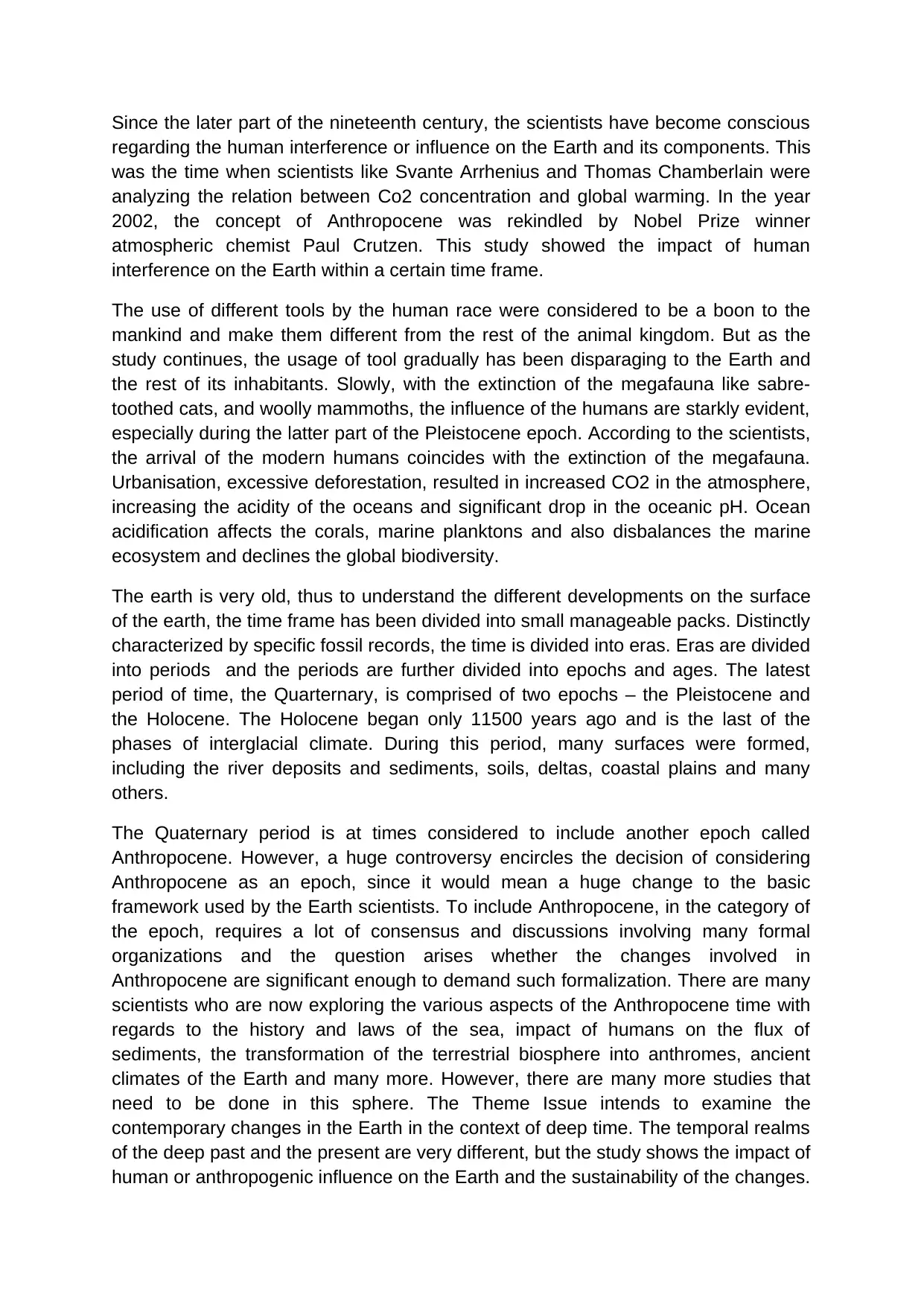The Anthropocene Epoch: An Environmental Science Essay Analysis
VerifiedAdded on 2022/11/22
|2
|592
|264
Essay
AI Summary
This essay delves into the concept of the Anthropocene epoch, exploring the significant influence of human activities on Earth's geological time and environment. It begins by tracing the historical awareness of human interference, citing scientists like Svante Arrhenius and Paul Crutzen, and highlighting the impact of tool usage on the planet. The essay examines the extinction of megafauna, urbanization, and deforestation as key factors contributing to increased CO2 levels, ocean acidification, and biodiversity decline. It provides a geological context by explaining the division of time into eras, periods, epochs, and ages, focusing on the Quarternary period and the controversial inclusion of the Anthropocene as a new epoch. The essay emphasizes the need for consensus among scientific organizations and the ongoing research into various aspects of the Anthropocene, including its impact on terrestrial biospheres and ancient climates, underscoring the importance of understanding contemporary changes in the context of deep time and the sustainability of these changes.
1 out of 2




![[object Object]](/_next/static/media/star-bottom.7253800d.svg)